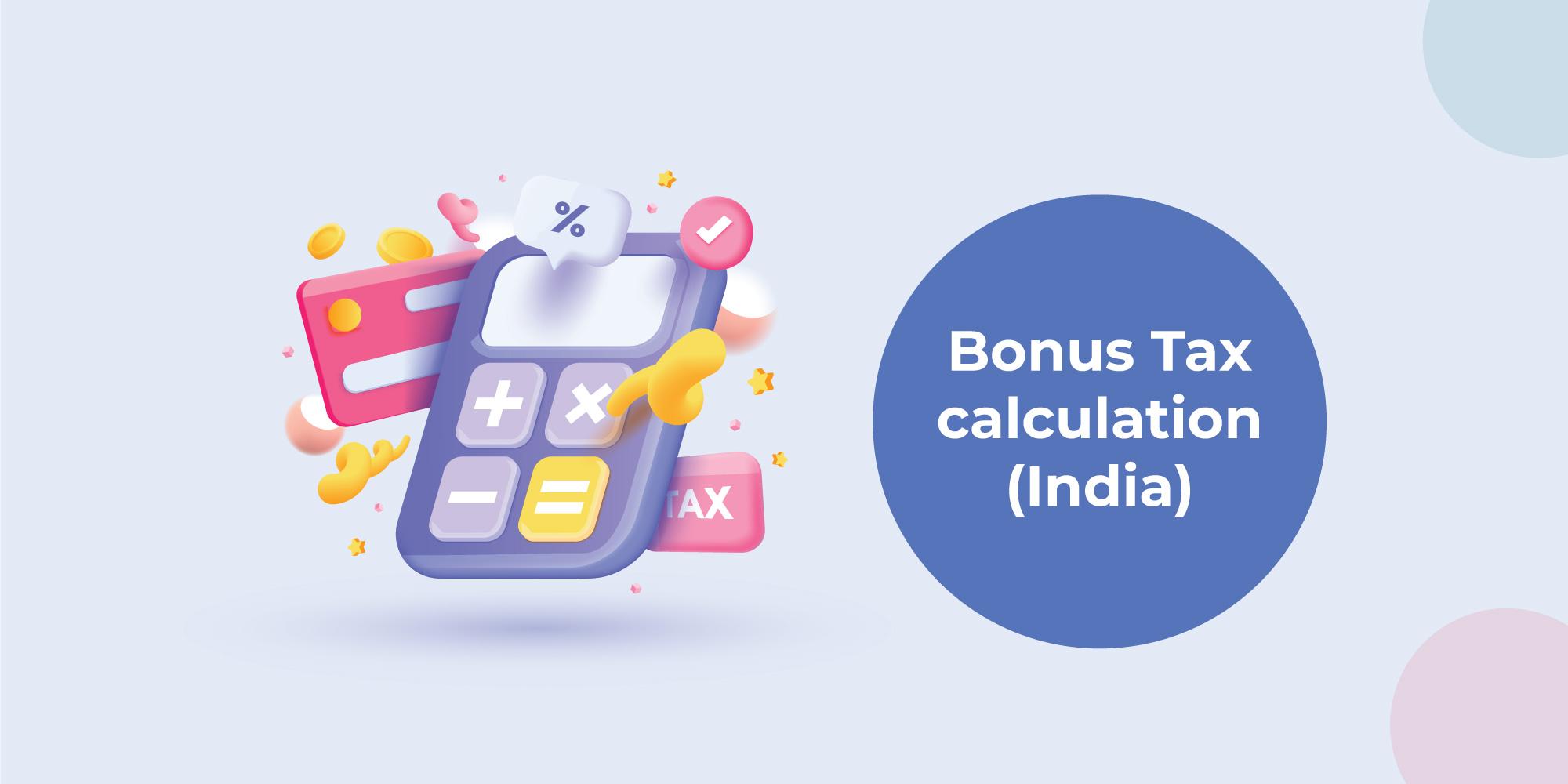
Bonus taxability is all about knowing how your bonus is taxed, so you can understand your liabilities better. Bonuses are additional earnings that you get from your employer for various reasons. In some cases, they are linked to your performance and in other cases, they are paid to you as a share of the profits as per the Payment of Bonus Act, 1965.
A bonus is an essential part of the compensation structure for employees. It serves to reward and motivate them in many ways. Understanding the calculation of tax on bonus in India can help you comply with the law and avoid penalties.
To know more about bonus taxability in India, read on.
Keep in mind that you pay income on your earnings if your income exceeds the exempted limit. Your salary forms a part of these earnings. The tax you pay is calculated as per the tax slab you come under. There are different income tax slabs for various income amounts as per the old and new tax regimes.
When you receive a bonus from your employer, this amount is directly added to your total salary. For instance, if your gross salary is ₹12 lacs and you get a bonus of ₹1 lac, then your total gross salary increases to ₹13 lacs.
Your employer makes calculations regarding the tax deducted at source or TDS on your salary, and this also includes the bonus amount. With the addition of a bonus to your salary, your gross salary amount increases. This results in higher TDS and may also lead to tax calculation as per a higher slab rate.
Keep in mind that you will need to pay tax on your bonus in the year it is announced if you know the amount. However, if you do not know the amount, it is taxed in the year you receive it.
The best way to understand bonus taxability is by seeing an example of the way it is calculated. Say your gross salary is ₹13 lacs and the bonus amount is ₹2 lacs. According to the old regime, the income tax rate is ₹12,500 + 20% above ₹5,00,000 as per the tax slabs for AY2023-24.
| Particulars | Amount |
|---|---|
| Gross Salary | ₹13 lacs |
| Add: Bonus | ₹2 lacs |
| Total Gross Salary | ₹15 lacs |
| Less: Incentives and Tax-free Allowances | ₹3 lacs |
| Net Salary | ₹12 lacs |
| Less: Standard Deduction | ₹50,000 |
| Less: Deductions Under Section 80C | ₹1.5 lacs |
| Taxable Salary | ₹10 lacs |
| Payable Tax | ₹12,500 + 20% above ₹5 lacs = ₹1,12,500 |
| Monthly TDS Deduction | ₹1,12,500/12 = ₹9,375 |
Now, if your total taxable salary had crossed ₹10 lacs, your slab rate would change and you would end up paying more tax: ₹1,12,500 + 30% above ₹10,00,000.
Take a look at the calculation to see how the TDS is calculated without any bonus.
| Particulars | Amount |
|---|---|
| Gross Salary | ₹13 lacs |
| Less: Incentives and Tax-free Allowances | ₹3 lacs |
| Net Salary | ₹9 lacs |
| Less: Standard Deduction | ₹50,000 |
| Less: Deductions Under Section 80C | ₹1.5 lacs |
| Taxable Salary | ₹7 lacs |
| Payable Tax | ₹52,500 |
| Monthly TDS Deduction | ₹52,500/12 = ₹4,375 |
As you can see, the TDS amount is lower in this case.
Being aware of the bonus taxability is essential so you can plan your taxes effectively and try to get as many deductions as per various sections of the IT Act. This also helps you plan your cash flow better and achieve your goals too.
For all the times when you do not get a bonus or have unexpected financial obligations, you can bank on Fibe. Avail of Instant Personal Loan up to ₹5 lacs at affordable interest rates and repay without any prepayment charges. Download Fibe Instant Loan App or register on our website to enjoy simple and easy access to funds.
Tax calculation on bonus of ₹1 lac depends upon your salary and the income tax slab you fall under after adding the bonus to your taxable salary. For instance, if you have a salary of ₹12 lacs and you get a bonus of ₹1 lac on it, the total gross salary amounts to ₹13 lacs. In this case, your TDS will be ₹52,500 if you consider the regular deductions as per the table above.
You have to pay tax on bonus in India if the total amount that you get as a Diwali bonus exceeds ₹5,000. The tax on your bonus is deducted as per the income tax slab you come under.
You can avoid paying tax on your bonus if the bonus amount is equal to or lower than ₹5,000. If your bonus amount goes beyond this limit, you need to pay tax on it.
When you get a bonus, it gets added to your salary. From this gross salary, your tax is computed on the taxable salary after all deductions and allowances are subtracted based on your tax slab.
Yes, the bonus that you get is fully taxable as per Section 17 of the Income Tax Act.
The tax rate applied to the bonus depends upon your taxable salary after considering all allowances and deductions based on your tax slab. There is no other rate that you can use for tax calculation on bonus.
Source:
https://www.incometax.gov.in/iec/foportal/help/individual/return-applicable-1
https://incometaxindia.gov.in/charts%20%20tables/treatment_of_income_from_different_sources.htm